Odeon is a cinema chain that operates in the United Kingdom and Ireland. It is the largest cinema chain in the UK and Ireland, and one of the oldest and most well-known cinema chains in the world.
Odeon cinemas are known for their comfortable seating, state-of-the-art sound and projection systems, and a wide selection of films. Many Odeon cinemas also offer additional amenities such as cafes, bars, and restaurants.
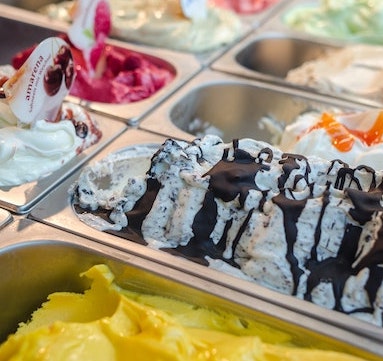
Table of Contents
Historical Perspective: Beginnings of the Cold Cinema
Air Conditioning’s Golden Age
It all started in the roaring 20s when modern comforts began shaping society in novel ways. Movie theaters, eager to lure in audiences and give them a unique experience, were among the first public places to adopt air conditioning. Willis Haviland Carrier, the father of modern air conditioning, saw theaters as the perfect venue for showcasing his invention. People didn’t just flock to theaters for the latest film; they came in droves to experience the luxury of a cooled environment, especially during sweltering summers.
Marketing Ploys: Drawing in the Masses with Coolness
Being cooler than competitors quickly became an attractive feature for theaters. Marketing campaigns were built around the promise of an escape from the summer heat. Advertisements from that era boasted about “Cool Comfort” and “Refreshingly Cooled” interiors, making it clear that the theater’s atmosphere was as much a part of the allure as the films being shown.
Evolution over the Decades
As time progressed, the trend set by those initial theaters became the industry standard. Even as residential air conditioning became more common, the association between movie theaters and a refreshing, cool environment persisted. The 1950s and 60s saw a boom in drive-in theaters, and while these open-air cinemas couldn’t offer air-conditioned comfort, indoor theaters continued to capitalize on their cool advantage.
Cultural Shift and Modern Appreciation
Today, even though we live in a world where air conditioning is ubiquitous, the cultural memory of those early theaters remains. It’s a testament to the significant role they played in popularizing the technology and setting a standard for viewer comfort. While modern audiences might not be aware of this history, they certainly reap the benefits, enjoying films in cool, climate-controlled comfort, reminiscent of those pioneering theaters of the past.
Technical Reasons for the Chill: Beyond Comfort
Equipment Heat
The modern movie theater is a technological marvel. High-resolution projectors, booming sound systems, and sometimes even servers for streaming current releases all reside behind the scenes. These machines, while optimized for performance, emit a considerable amount of heat. Without a cool environment, there’s a risk of these machines overheating, leading to malfunctions or, worse, shortening their lifespan. Ensuring these tools of the trade run smoothly requires a consistent, cooler climate.
Sound Quality and Acoustics
While it might sound surprising, temperature can indeed influence sound. Colder air is denser, which can affect how sound waves travel. In a cooler environment, sound can become sharper, ensuring that every word of dialogue, every note of the soundtrack, and every special effect is delivered with clarity. This provides movie-goers with the immersive audio experience they expect from modern cinemas.
Projector Performance
Film projectors, especially digital ones, are sensitive pieces of equipment. The consistent performance of a projector relies on maintaining a specific operating temperature. Too much heat can cause the projector to falter, leading to disruptions in the movie. By maintaining a cooler ambiance, theaters ensure that the visual aspect of the movie-watching experience remains uninterrupted and of high quality.
Safety Precautions
Beyond just equipment efficiency, there’s also a safety aspect. Electronic equipment, when overheated, can become fire hazards. Keeping theaters cooler is a way to mitigate such risks, ensuring the safety of both the equipment and the patrons.
Optimal Screen Visibility
Ambient temperature can influence how well a projector’s light illuminates the screen. In a warmer environment, the heat can cause slight warping or disturbances in the image quality. Cooler temperatures help maintain optimal viewing conditions, ensuring that every frame is displayed as intended by the filmmakers.
Consumer Comfort: Not Just about the Temperature
Body Heat Impact
When you factor in a packed cinema, the warmth from hundreds of people can significantly alter the room’s temperature. Imagine the collective body heat from a sold-out show during a movie premiere! The air conditioning is calibrated to compensate for this potential temperature spike, ensuring a consistent and pleasant climate regardless of audience size.
Clothing Considerations
Movie theaters, being public places, often see patrons dressed in a range of outfits, from casual tees to more formal attire, depending on the occasion. Anticipating that movie-goers might wear heavier or layered clothing, theaters maintain a cooler environment to ensure everyone, regardless of their attire, remains comfortable.
Enhancing Snack Experience
A cooler atmosphere makes the cold drinks crisper, the ice creams last longer, and even the hot popcorn feels warmer in contrast. This temperature play enhances the sensory experience of enjoying movie snacks, turning it into a more delightful treat.
Preventing Sleepiness
A warmer environment tends to make people drowsy. Theaters, keen on keeping their audiences engaged, use cooler temperatures to keep sleepiness at bay. After all, they want you to catch every moment of the drama, action, or romance, not doze off in the middle!
Perceived Value and Expectations
Movie-goers are paying for an experience, not just a film. The ambient temperature, combined with the plush seating, dim lighting, and surround sound, culminates in the ultimate cinematic experience. By ensuring the temperature is just right, theaters are upholding a standard and meeting the expectations set by the industry over decades.
Health Considerations
In a post-pandemic world, cleanliness and health have become focal points of public spaces. A cooler environment, combined with regular air circulation, can reduce the proliferation of germs, ensuring a safer environment for patrons.
The Business Side of Things: Lowering Costs
Energy Efficiency
Most modern theaters are equipped with state-of-the-art HVAC systems. Operating these systems during off-peak hours or maintaining a consistent, slightly cooler temperature can be more energy-efficient than frequently adjusting the thermostat or having the systems work overtime when the cinema is packed. Over time, such energy savings can result in significant cost reductions for the theater.
Equipment Longevity
By keeping theaters cool, there’s less strain on the projectors, sound systems, and other electronics, which we’ve already established produce heat. Prolonging the life of this equipment by operating them in optimal conditions is a cost-saving measure in the long run, minimizing repair and replacement expenses.
Attracting Larger Audiences
If a theater gains a reputation for being comfortable and refreshing, especially during hot summer months, it can draw larger crowds. More patrons translate to more ticket sales, concessions, and potentially higher profits. Investing in creating a comfortable environment can yield returns in terms of customer loyalty and increased patronage.
Reduced Liability
Electronics and heat are not a good mix. Overheated equipment can malfunction, pose fire risks, or even cause accidents. By maintaining a cooler environment, theaters can potentially reduce the risk of such incidents, thereby minimizing liability costs and ensuring the safety of their patrons.
Enhancing Concession Sales
As mentioned earlier, a cooler environment can make cold drinks and snacks more appealing. This seemingly simple temperature play can boost concession sales, as movie-goers opt for chilly beverages or ice creams to complement the environment. Such incremental sales can make a significant difference in a theater’s bottom line over time.
Optimizing Staff Productivity
It’s not just the movie-goers who benefit from a cooler environment. Staff, constantly on their feet attending to patrons, managing the box office, or handling the concessions, are likely to be more productive and efficient in a comfortable setting. Happy and comfortable staff often lead to better customer service, enhancing the overall reputation of the theater.
Perception of Quality: How Cold Enhances Experience
Setting the Stage for Luxury
In many cultures, air conditioning is still considered a luxury. The mere sensation of walking from a warm environment outside to a cool movie theater can heighten the sense of indulgence. It’s reminiscent of being pampered, of stepping into a space that offers more than just the basics. This shift in ambiance can be the first marker of a high-quality experience, setting audience expectations even before the movie starts.
Distraction Minimization
The comfort of a cooler environment reduces potential distractions. If one is too warm, they might become restless, frequently adjusting their sitting position, or might become more conscious of their environment. A cooler theater ensures that the viewer’s focus remains firmly on the screen, engrossed in the narrative being unfolded.
Enhanced Emotional Responses
Believe it or not, our physical environment can influence our emotional responses. A slightly cooler room might make suspense scenes feel even more chilling or make emotional moments resonate more deeply. While this may be a subconscious effect, it undeniably adds layers to the viewing experience.
A Contrast to the Mundane
For many, visiting a movie theater is an escape from daily life. The drastic shift in temperature accentuates this feeling of stepping into another world, amplifying the sensation of detachment from the outside world. This temperature-induced barrier bolsters the illusion that, for those couple of hours, you’re in a different realm, intensifying the immersive quality of the cinema.
Reinforcing Memory
Studies have shown that environmental factors, including temperature, can influence memory retention. A unique temperature setting, different from daily environments, can make the movie-going experience more memorable. In a cooler theater, viewers might find that the plot, characters, or even specific scenes stay with them longer, further reinforcing the perception of a quality experience.
Subtle Associations with Freshness
Cool air often feels fresher to people, as it is reminiscent of outdoor breezes or early morning chill. This freshness can subconsciously be associated with the idea of the movie or experience being “fresh” or novel. It’s a subtle play on human psychology but can elevate how the entire outing is remembered.
FAQ
Isn’t it more expensive for theaters to maintain a cooler temperature?
While it might seem counterintuitive, maintaining a consistent cooler temperature can be more energy efficient than frequently adjusting the thermostat. Furthermore, prolonging the life of equipment, attracting larger audiences, and increasing concession sales often offset the costs.
Did historical theaters also maintain a cooler environment?
Yes, in the early 20th century, theaters were among the first public places to boast air conditioning. This was a significant draw for patrons, especially during summer months, setting a precedent for cooler theaters.
Are all theaters around the world kept cold?
While many theaters globally maintain a cooler environment for the reasons mentioned, regional preferences, cultural norms, and climatic conditions can influence the exact temperature settings in theaters worldwide.
See Related Posts
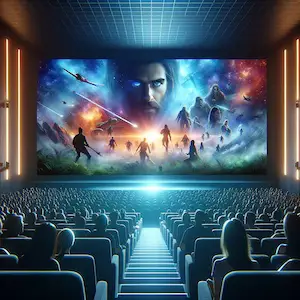
Average Cinema Screen Size

Movie Theater Popcorn at Home
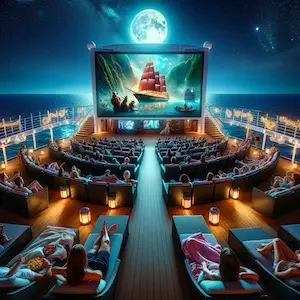
Movie Theaters on Cruise Ships
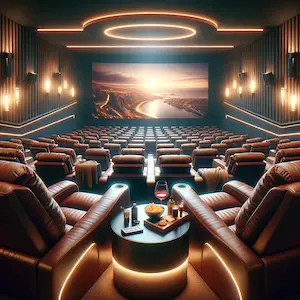
Recliner Seat Movie Theater
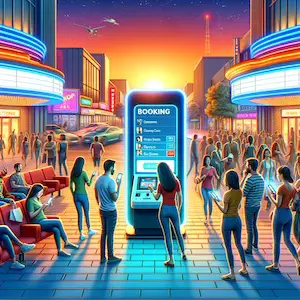
Do you have to book Cinema Tickets in advance?
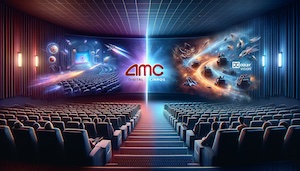
AMC Digital vs. Dolby
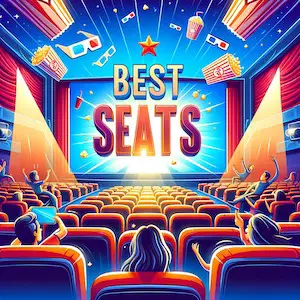
Best Seats in Theater for Movie
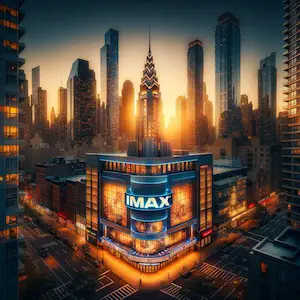
Biggest IMAX Screens in NYC
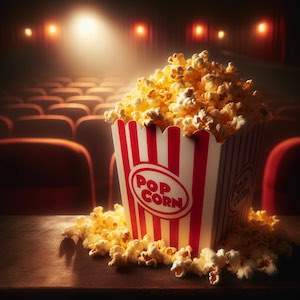
Nutritional Value of Movie Theatre Popcorn

